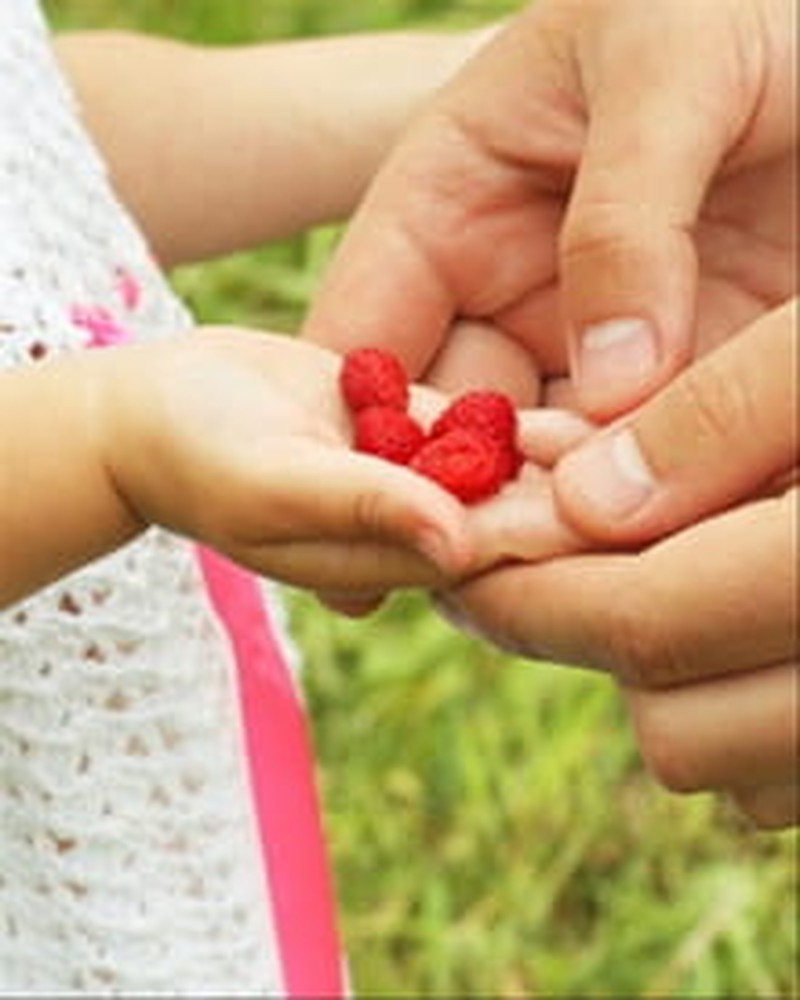The Sweet Taste of Comparison
- Melanie Hexter Homeschool Enrichment
- Published Aug 26, 2011

Florida is well-known for its citrus fruits, Maine for its cranberry bogs, and the state of Washington for its apples. Georgia is home to world-famous peaches, Hawaii to pineapples and guavas, and Michigan to blueberries. Each of these fruits symbolizes the state in which it is grown. Even my own humble little Midwestern yard is known—at least by family, friends, and the UPS driver—for its edible landscaping: blueberry and raspberry bushes amongst the flower beds, apple trees in the backyard, and an abundance of strawberries lining the sidewalk.
And yet we know that oranges are different from cranberries, apples don’t taste like peaches, and pineapple is served differently from blueberries. We accept those differences and don’t try to force the flavor or uniqueness of one fruit upon another. We relish the variety.
So why do we as homeschoolers spend so much of our lives comparing ourselves to others—and usually feeling like we come up short? The simple answer is that it’s human nature, evident since the book of Genesis. Our children compare without ever being taught. “His cookie is bigger than my cookie.” “But Jared gets to go to the library. Why can’t I?” We adults compare ourselves too. “Their grass doesn’t have any dandelions.” “He gets four weeks of vacation. How come I only get three?” And unfortunately, we homeschoolers compare our families and our teaching methods with those of others. “Their son is already reading.” “I notice they have switched to XYZ math curriculum. Hmmm.”
There’s one sense in which comparison—or at least something akin to it—isn’t always inherently bad. It’s our attitude and what we do with the results of our comparison that matters. We can grow through looking at another family and how they are different, how they educate their children differently. Looking to others can spur me on to improved homeschooling, more godly character traits, and a better life. But comparison can also be a dangerous, negative way to do school and ultimately to live. What are you going to do with the results of your ongoing comparisons with others?
The Downside of Comparison
Anytime we make comparisons, we are allowing the possibility of the seeds of discontentment or pride to have a foothold in our lives. Think of another homeschool family you know, whose children are about the same ages as your children. Imagine a conversation with them, one in which you ask them to name all of their curriculum, what pages they are on in each book, and how their children are progressing in each subject.
Two responses are possible:
*Their answer reveals that their children are way ahead of your children in studies. You end up feeling discouraged.
*Or their reply shows you that your children are ahead of theirs in terms of learning. You begin to feel a tinge of pride.
In reality, when you compare your children’s progress with that of others, it’s likely a mixed bag; yours are probably ahead in some places and behind in others. But isn’t that the beauty of how God has created each of us? And isn’t that one of the distinct benefits of homeschooling—that our children become the uniquely gifted people God has created each of them to be, minus the shame and the labels that often come from the comparison that is intrinsic in institutional schooling? For example, when my son was “late” to learn to read, no matter what methods or techniques I used, comparison was inevitable. (I grew to be able to question the terms “late” and “early,” by the way.) How I responded to his level of progress peaked and valleyed; sometimes I felt content, but often discouragement and even envy entered in.
This type of comparison has a distinct danger. As I look to other homeschoolers, do I rely too heavily on my friends’ ways of teaching? What if I use their homeschools as a yardstick by which to measure mine? What if I let comparison become my way of operating and my main means of feeling good about my children?
I’ll be honest: I’d be fooling no one but myself if I didn’t admit to using others as a mirror from time to time. I take a quick glance to see what their kids are reading and how they are spelling, or to look in awe at their math workbooks. The quick glance isn’t the problem—it’s what I do afterward that can be damaging.
Comparison that leads to any sort of discontentment must be challenged for what it is—un-Christlike! Neither discouragement nor pride is listed in Galatians 5 as coming from the Holy Spirit. When our lives bear fruit that doesn’t resemble the fruit of the Spirit, we must acknowledge the source as our flesh. Call it sin, thank Jesus that He already died for those attitudes, and move on in Him! Remind yourself that He in His wisdom gave you your specific children, and He is the one equipping you as a parent to teach them. Remember that you and your children are right on schedule.
The Upside of Comparison
When I was new to homeschooling, I sought out other, more experienced moms for help. I’d ask these veteran homeschoolers all my questions, ask if I could come over to their homes for a morning to watch them homeschool their children, and read as many of their books and magazines as they were willing to loan to me. I wanted their wisdom, seeing their families as a point of comparison for what my family’s schooling could become.
Fast-forward 12 years to where I am today—six children, the oldest of whom is a junior in our homeschool high school. I still value input from others. I like to hear what curriculums other moms are using and what’s working for their kids, and to draw from their experiences. I like to keep in touch with one or two moms whose children are a couple years older than my eldest so I can know where we might be headed. Talking to someone who’s recently been there really helps me a lot.
This sort of comparison is healthier. Biblically, it’s more like iron sharpening iron. As I make comparisons, I’m being encouraged, perhaps even relieved, that my family and I are right on schedule. Or maybe I’m being challenged to make adjustments in our learning style or schedule, finding new ways to make learning easier or more fun.
When I compare my family’s homeschooling style and curriculum to another family’s, I can take action by:
- Switching grammar programs or skipping formal grammar instruction altogether;
- Buying desks for each of the kids or moving all our schooling to the kitchen;
- Getting more organized with our school schedule or becoming more relaxed;
- Teaching several subjects with all my kids together or beginning to have them work more independently;
- Joining a local co-op or withdrawing from co-op to spend more time at home.
The possibilities are endless, as diverse as there are families who homeschool. The fact is, we shouldn’t try to become like other families. We need to be ourselves and let our homeschooling be an expression of the family that God is calling us to become.
The Bible uses all kinds of fruit-filled metaphors to describe our lives. As Christians, we often speak of “bearing fruit.” We teach our children to recite the “fruit of the Spirit” listed in Galatians 5. We know that if we learn to abide or remain in Christ, we will bear good fruit, or somehow think, act, and speak in a way that resembles Him. It’s the old fruit-not-falling-very-far-from-the-tree principle. On the other hand, when we don’t rely on the Holy Spirit, our fruit can be undesirable, needing pruning and not emitting a sweet aroma.
When I am struggling with any homeschooling issue, including comparison, I try to talk to my husband about it. He is often faithful to remind me that checking the fruit I am bearing is a great way to determine if I’m abiding in Christ or not. If I am experiencing love, joy, and peace in a situation, I can be confident that the Lord is in it. If the fruit I am seeing is contrary to that famous list from Galatians 5, then I can be pretty sure that I am forcing the outcome in my flesh, and it’s not Jesus who is determining my steps.
As Christians who happen to be homeschoolers, my question for you is this: what kind of fruit are you bearing? The evaluation I’m seeking isn’t an academic one. We all like to ask ourselves, “How are my kids doing in terms of schoolwork and learning progress?” We like to know our kids are doing OK, that our methods are working, that we are succeeding as teachers. Instead, I’m asking both you and me to measure the quality of our fruit in regards to our degree of contentment. How are we doing?
The Hexter family lives (and bears fruit) in central Ohio. Melanie and Matthew have six children whom they’ve been homeschooling since 1998. With the recent arrival of a baby, they’ll be at it a while longer! They lead a local workshop for families considering home education and try to connect new homeschoolers with veterans for the purpose of encouragement. Melanie has authored a literature-based curriculum and can be contacted at www.lemiloepublishing.com.
This article was originally published in the Jan/Feb 2011 issue of HomeSchoolEnrichment Magazine. To learn more, and to request a FREE sample copy, visit www.HomeSchoolEnrichment.com




















